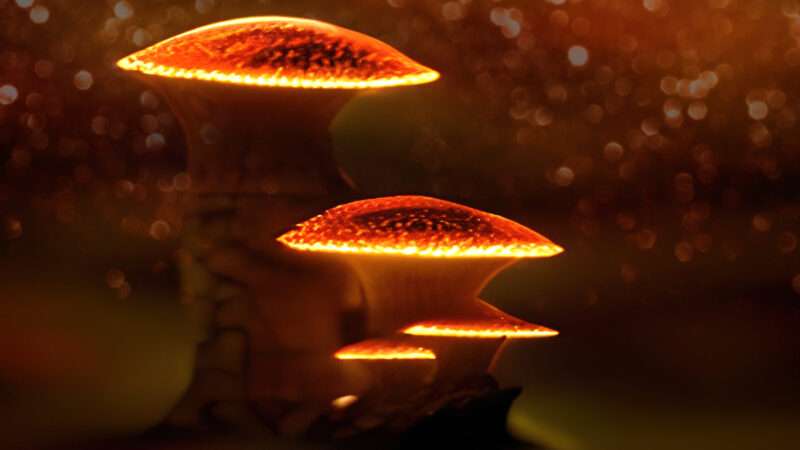
Three years ago, Denver voters passed a groundbreaking ballot initiative that made adult possession of psilocybin the city's lowest law enforcement priority and prohibited the use of public money to pursue such cases. Next month, voters statewide will consider a psychedelic measure that goes much further—further even than the initiative that Oregonians approved in 2020, which will allow adults 21 or older to use psilocybin in state-licensed "service centers" under the supervision of "facilitators." If successful, the Colorado initiative would represent the broadest liberalization of psychedelic policy ever approved in the United States.
Colorado's Proposition 122 would decriminalize noncommercial activities related to the use of "natural medicine" by adults 21 or older. It defines "natural medicine" to include psilocybin, psilocyn (another psychoactive component of "magic mushrooms"), dimethyltryptamine (DMT, the active ingredient in ayahuasca), ibogaine (a psychedelic derived from the root bark of the iboga tree), and mescaline (the active ingredient in peyote).
The covered activities, which would not be subject to criminal or civil penalties, include "growing, cultivating, or processing plants or fungi capable of producing natural medicine for personal use." Also protected: possessing, storing, using, transporting, or obtaining the listed psychedelics or distributing them to adults 21 or older "without remuneration."
All of the psychedelics covered by Proposition 122 are currently classified as Schedule I controlled substances under state law. Possession of 4 grams or less for personal use is a misdemeanor punishable by up to a year in jail, while possession of larger amounts is a felony, as is manufacture or distribution. Manufacturing or distributing 14 grams or less, for example, is a Level 3 drug felony, punishable by a fine of $2,000 to $500,000 and two to four years in prison.
Under Proposition 122, "natural medicine" would remain illegal for anyone younger than 21. But the penalty for possessing or sharing the psychedelics would be limited to "no more than four (4) hours of drug education or counseling provided at no cost to the person."
In addition to eliminating penalties for conduct related to personal use of "natural medicine," Proposition 122 would establish an Oregon-style system of supervised administration at state-licensed "healing centers." The Department of Regulatory Agencies would be required to start accepting applications for healing center licenses by September 30, 2024.
The centers' services initially would be limited to psilocybin and psilocyn. But after June 1, 2026, regulators would be authorized to add DMT, ibogaine, and/or mescaline (but not peyote itself) if the Natural Medicine Advisory Board created by the initiative recommended it. The 15-member board, which would be appointed by the governor with the state Senate's approval, would include experts on subjects such as medicine, mycology, mental health, drug policy, harm reduction, health policy, and religious use of psychedelics.
The initiative notes that "natural medicines have been used safely for millennia by cultures for healing." It adds that "an extensive and growing body of research" supports "the efficacy of natural medicines combined with psychotherapy as treatment for depression, anxiety, substance use disorders, end-of-life distress, and other conditions." But like Oregon's initiative, Proposition 122 would not require that clients of psychedelic centers have any particular medical or psychiatric diagnosis.
Oregon's 2020 initiative passed with support from 56 percent of voters. That was up nine points from the level of support indicated by a 2019 DHM Research survey.
An FM3 survey of likely Colorado voters commissioned by the Proposition 122 campaign and conducted last July, before the initiative qualified for the ballot, found that 60 percent of respondents were inclined to support it based on quoted ballot language. When the survey participants were given a "plain language" explanation of the measure, support rose to 70 percent, including 51 percent who said they would "definitely" vote yes, 15 percent who said they probably would, and 4 percent who said they were undecided but leaning toward yes.
By contrast, an Emerson College poll of "very likely voters" conducted last month put support for Proposition 122 at 36 percent, with 41 percent opposed and 23 percent undecided. The survey described the initiative as a measure that would "decriminalize and regulate distribution for psychedelic plants and fungi."
The post Colorado Voters Will Soon Decide Whether To Decriminalize 5 Natural Psychedelics appeared first on Reason.com.







